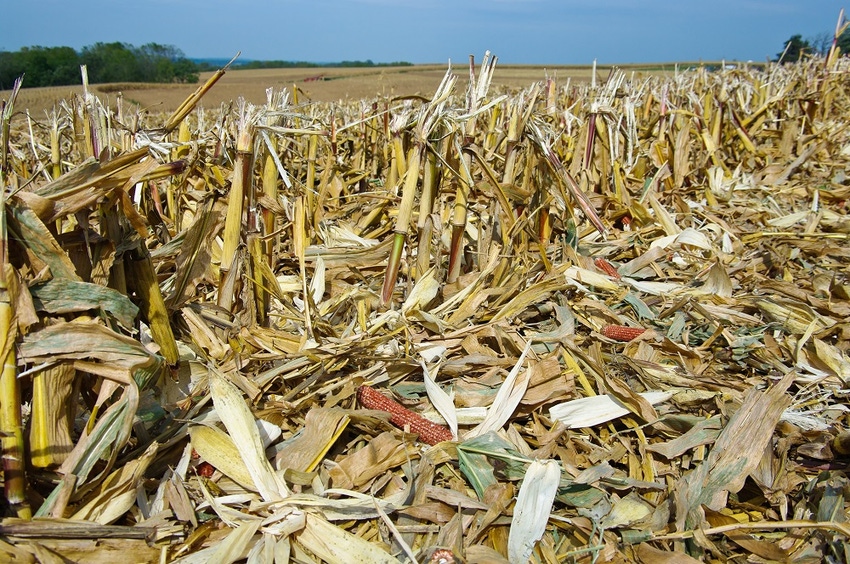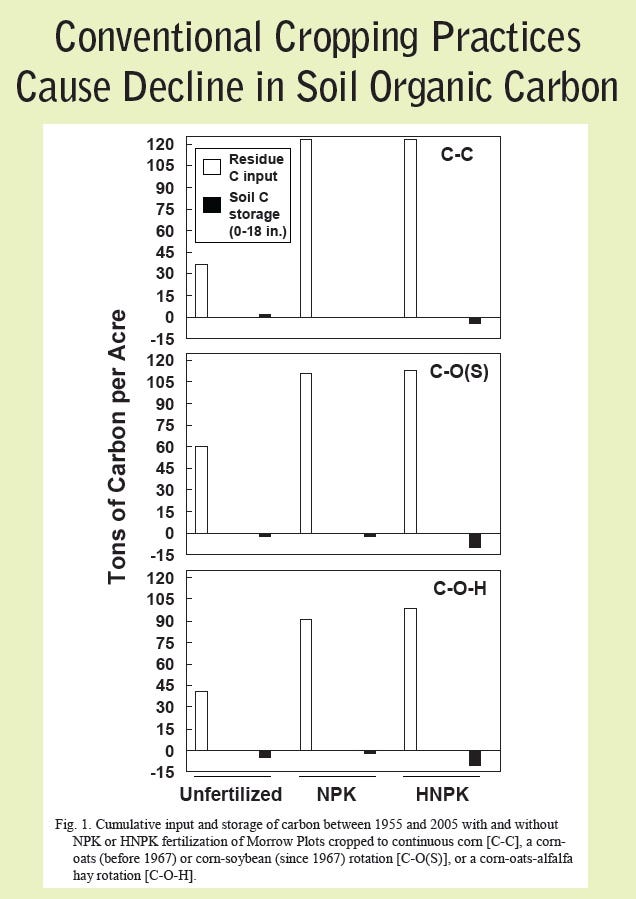
For many years now the claim has been made that nitrogen fertilizer can increase soil health, but a great body of research says it actually decreases soil organic matter and therefore hurts soil health.
A foundational study is the Morrow Plots on the campus of the University of Illinois, Champaign-Urbana. They were established in 1876 and are the oldest experimental field in the U.S. They encompass the world’s longest period of cropping to continuous corn on the most productive soil order, the Mollisols, which are prairie soils. Of course, this was once deep, productive tallgrass prairie.
Beginning in 1955, fertilization with commercial nitrogen, phosphorus and potassium was begun for a series of unreplicated subplots to increase grain yield and to augment production of above-ground residues that would subsequently be incorporated into the soil rather than removed. The idea at the time was this would sequester soil organic matter (SOM) and thereby sustain agricultural productivity.
Sixty years later, researchers say that's not how it worked out.
In a paper published in the Journal of Environmental Quality in 2007, researchers associated with the Morrow Plots wrote definitively that nitrogen fertilizer decreased the amount of soil organic matter.
"As opposed to the usual assumption, fertilization was of little, if any, benefit for soil carbon sequestration," the researchers wrote. "Rather, the only significant SOC (soil organic carbon) changes detected were net losses, and these tended to be more extensive for the subsurface than the surface soil and more serious for the subplots receiving high rates of N, P and K than for the others studied."
They also noted in their 2007 paper that the logical interpretation for their data over 51 growing seasons was a substantial decline in soil organic carbon and a release of the carbon as atmospheric CO2.
The authors wrote that these negative effects were so consistent across the years and across cropping systems, including corn-on-corn and corn-soybean rotations, that logic dictates they should be seen in field studies elsewhere. In fact they have been. They then described study after study showing exactly those results. Similar studies, including various tillage systems, showed an increase in biomass together with little or no benefit to soil carbon sequestration in Indiana, Iowa, Kansas, Kentucky, Michigan, Minnesota, Missouri, Nebraska, North Dakota, South Dakota and Wisconsin, they wrote.
They also cited research showing the same trend in multiple states and foreign countries for wheat, rice, barley, cotton, various mixed cropping systems, and pine plantations.
Despite all this evidence, reports that nitrogen fertilization can increase soil organic carbon sequestration are common in scientific literature. Why?
The authors suggested this might be because nitrogen fertilizer studies have tended to focus on short-term economic gain rather than long-term soil health and cropping sustainability.
I first wrote about this in 2015, but have seen little of it at any time before or since. I figure it's time to push this uncomfortable science out once again.

Carbon loss
About the Author(s)
You May Also Like




